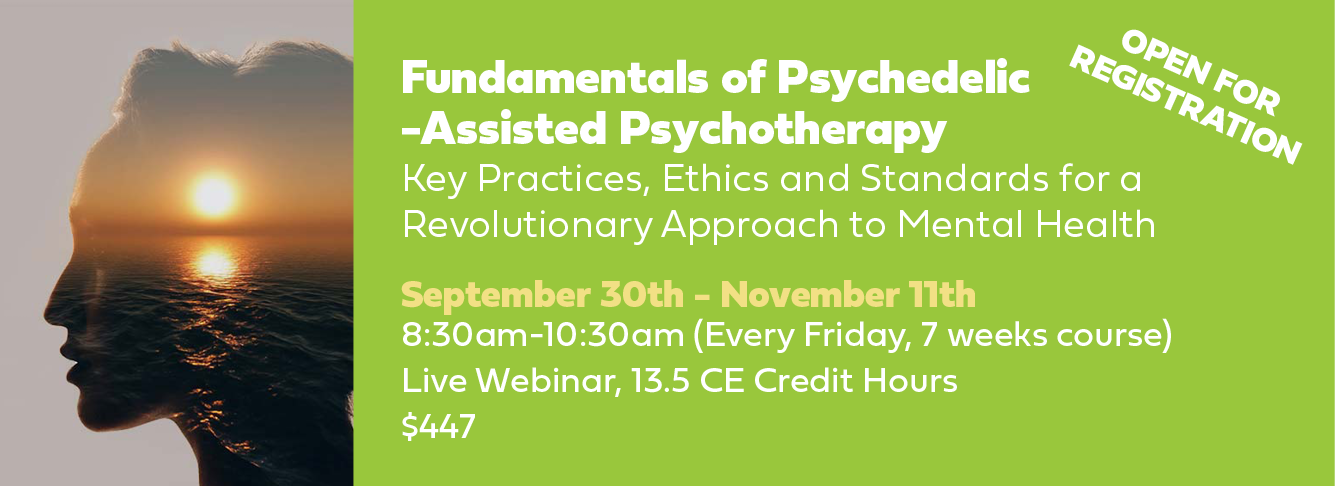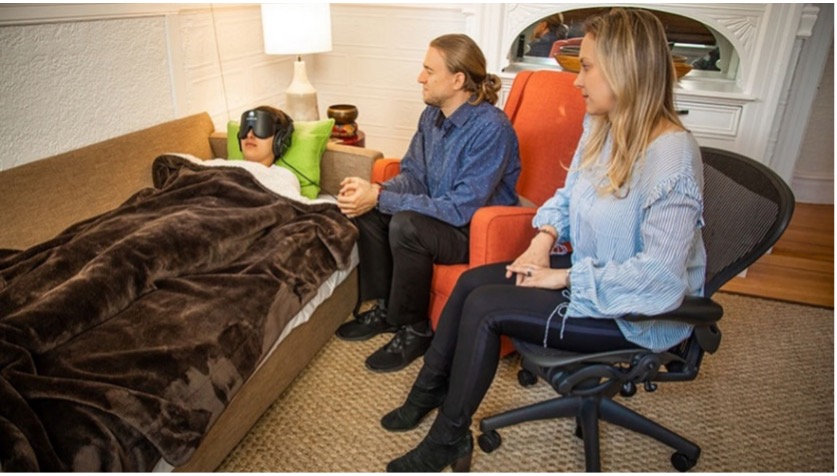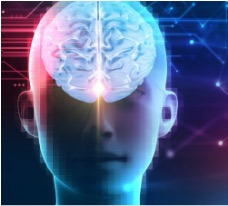
Fundamentals of Psychedelic-Assisted Psychotherapy
Key Practices, Ethics and Standards for a Revolutionary Approach to Mental Health
"Psychedelics are to the study of the mind what the microscope is to biology and the telescope is to astronomy" ~ Dr. Stanislav Grof
There is growing world-wide interest in the innovative field of psychedelic-assisted psychotherapy. In this introductory program, you'll gain important insight regarding the history of these treatments, the current clinical trials and research findings, important ethical considerations and how this innovative approach is being integrated with traditional approaches to therapy to create inspiring outcomes for patients and clients.
Schedule and Cost
Tuition: $447
Class Schedule:
Sept 30th to Nov 11th
7 consecutive Fridays – 8:30 AM – 10:30 AM PT (11:30 - 1:30 PM ET)
Live remote learning (sessions conducted via Zoom)
CE Credit Available: 13.5 Hours CE Hours through Lifespan Learning
For Psychologists (PhD, PsyD), Clinical Counselors, LEP, LPCC, LCSW, MFT
This program qualifies for 13.5 CE Hours
Course Description and Objectives
 There are currently more than two hundred clinical research studies being conducted around the world, examining the effectiveness of psychedelic-assisted therapy in treating health issues such as end of life anxiety, treatment-resistant depression, generalized anxiety, PTSD, substance abuse disorder, and chronic pain.
There are currently more than two hundred clinical research studies being conducted around the world, examining the effectiveness of psychedelic-assisted therapy in treating health issues such as end of life anxiety, treatment-resistant depression, generalized anxiety, PTSD, substance abuse disorder, and chronic pain.
The results of this research are extremely promising, generating growing interest from both mental health professionals looking for new options as well as people suffering from these conditions. Even so, there are many considerations health professionals must be aware of when it comes to psychedelic-assisted therapy.
In this interactive program, participants will learn how to:
1. Define what psychedelic-assisted therapy is, and the 4 areas of focus for current psychedelic-assisted therapy research.
2. Identify the factors that constitute a psychedelic experience.
 3. Identify the current regulatory status of psychedelics as schedule 1 substances, including the legal vs restricted ways in which psychedelic-assisted therapy is available in the US.
3. Identify the current regulatory status of psychedelics as schedule 1 substances, including the legal vs restricted ways in which psychedelic-assisted therapy is available in the US.
5. Identify the political and social influences that led to psychedelics being classified as illegal, Schedule 1 substances by 1970.
6. Identify the key uses of 8 psychedelics and plant medicines, including the risks, benefits, and contraindications associated with each.
7. Examine the current status of clinical trial research involving psychedelics, including the 3 stages of approvals needed, the most common processes being utilized, and the main psychological and physiological exclusionary criteria to qualify participants.
8. Identify and describe key similarities and differences of psychedelic-assisted therapy with more traditional therapeutic approaches, as well as which therapeutic models are commonly used when conducting psychedelic-assisted therapy.
9. Recognize the recommended skills needed to effectively deliver psychedelic-assisted therapy and which skills are most critical to positive outcomes with clients / patients.
10. Recognize the important ethical considerations related to psychedelic-assisted therapy, including the additional considerations regarding informed consent, thorough screening, exclusionary conditions, steps for pre-session preparation, post-session integration and examine how all these stages directly affect patient/ client outcomes.
11. Define and discuss the important safety issues related to psychedelic-assisted therapy and working with people in altered states, including transference, countertransference, interpersonal boundaries, and power dynamics.
12. Examine the neuropharmacology of psychedelics (with specific focus on MDMA), how it works in the brain and body to induce psychological and physiological effects.
 13. Identify the specific ways in which ketamine is legally being used to treat anxiety / depression in Canada and the US, its history, benefits, and limitations.
13. Identify the specific ways in which ketamine is legally being used to treat anxiety / depression in Canada and the US, its history, benefits, and limitations.
15. Identify best practices when fielding questions about psychedelics or psychedelic-assisted therapy from patients / clients, including harm reduction recommendations, as well as specific ways to avoid legal or liability issues when discussing psychedelics.
16. Explore the intersection of psychedelics and wellness, including current clinical trials focusing on these outcomes.
17. Identify additional skills, resources, and options to prepare for the legalization of psychedelic-assisted therapy happening in the next 1 – 5 years.
This interactive program is delivered in lecture format, with additional opportunities for Q and A with guest presenters and small group discussion and exercises throughout.
By the end of the course, you'll have solid knowledge of psychedelic-assisted therapy and feel empowered to answer questions / make recommendations to clients or patients becoming increasingly interested in this approach to mental health.
This introduction to the use of psychedelics in psychotherapy is designed to meet the continuing education needs of Psychiatrists and Psychologists, and is also valuable for Marriage and Family Therapists, Clinical Counselors, Social Workers and those currently in training for mental health professions.
Presenters
This program is presented by renowned researchers, clinicians, and pioneers in the field of psychedelic therapy, including:
Dr. Candice Feinberg, Psy.D

Dr. Candice Feinberg is a licensed clinical psychologist and a highly respected authority in the field of mental health. She's appeared on national television, written articles for Psychology Today, and spoken at numerous conferences across the country.
Dr. Feinberg has worked in adolescent treatment since 2007. She has guided hundreds of families in many stages of recovery and pioneered a dynamic program focusing on the critical role of the parent in their children's recovery. She is known for her book, "No Parent Left Behind: Parenting from Love instead of Fear."
Dr. Feinberg has also served on the board of "For the Child", a non-profit organization dedicated to providing therapeutic services in schools and is currently the CEO of ROWI, Teen & Parent Wellness Center with 7 locations in Southern California.
Sonia Stringer - Board Member Psychedelic Association of Canada 2020 - 2022

Sonia Stringer has over 25 years' experience as a professional speaker and business coach. She started her career as a National Trainer for peak performance expert Anthony Robbins and in 2000 launched her own coaching and training company.
Since then, she has created and delivered hundreds of training programs focused on personal and professional development and has personally worked with 100,000+ clients in 36 countries.
Sonia is also a graduate of the University of Santa Monica, which offers a MA degree in Spiritual Psychology, and has devoted her entire career to studying traditional and innovative approaches to psychology and mental / emotional health.
She's been a passionate advocate of psychedelic-assisted therapy for over 25 years and served on the Board of the Psychedelic Association of Canada (2020 to 2022). She currently consults with companies creating training programs for MD's, therapists, nurses, psychiatrists, and other mental health care professionals interested in learning about psychedelic medicines.
Allison Feduccia - PhD

Allison Feduccia, PhD is a neuropharmacologist, psychedelic researcher and educator. She is the Co-Founder of "Psychedelic Support" and "Project New Day".
In these roles, Dr. Feduccia facilitates the spreading of evidence-based knowledge, connection to licensed health providers in the Psychedelic Support Network, and strategies for individuals to maximize the potential therapeutic benefits of psychedelics through safe and responsible practices.
In 2009, she earned a PhD in neuropharmacology from the University of Texas at Austin studying the effects of MDMA on behavior and neurochemical release. She was a postdoctoral researcher at the University of California, San Francisco and at the National Institutes of Health where she investigated treatments for substance use disorders. Her work at MAPS Public Benefit Corporation (2015-2020) focused on MDMA protocol designs, data analyses, scientific writing, and public education and outreach.
Robin Divine - BIPOC Advocate, Speaker / Consultant & Philanthropist

Robin Divine is the founder of “Black People Trip”, an organization that provides education regarding harm reduction and the safe uses of psychedelics in the Black community. She is a passionate advocate for the accessibility of psychedelic therapy in underserved communities.
In addition, Robin works as a “Safety and Equity” consultant for organizations that want to better understand, support and serve BIPOC individuals in the psychedelic space.
She is also the creator of the “Black Psychedelic Equity Fund” - an initiative designed to reduce the financial barrier to psychedelic care and fund the education of future Black psychedelic therapists.
Lauren Cabaldon - MA, LMFT, Psychedelic Therapist

Lauren Cabaldon is a licensed marriage and family therapist, psychotherapist, clinical supervisor, and clinic manager at Field Trip Health in San Diego.
She received her bachelor's degree in Sociology from the University of California, San Diego, and her master's degree in Counseling and Depth Psychology from Pacifica Graduate Institute.
She currently teaches as adjunct professor in the PhD Clinical Psychology program at Pacifica Graduate Institute.
Lauren has been working with psychedelics for many years and has witnessed their transformative power when harnessed with intentional integration, ritual, and attunement. She believes that an individual's personal encounter with the unconscious is essential for the healing process. Her favorite phrase comes from Carl Jung, "If we do not make the unconscious conscious, it will direct your life and you will call it fate."
Dr. Saundra Jain - MA, PsyD, LPC

Saundra Jain, MA, PsyD, LPC, is an Adjunct Clinical Affiliate, School of Nursing, at The University of Texas at Austin, and a psychotherapist in private practice.
Dr. Jain is a co-creator of the WILD 5 Wellness Program and co-author of a popular workbook written for those interested in improving their mental wellness - KickStart30: A Proven 30-Day Mental Wellness Program.
She is cocreator of the Psychedelics and Wellness Survey (PAWS) exploring the intersect between psychedelics and wellness. She serves as a member of the Psych Congress Steering Committee providing direction regarding educational gaps/needs for mental health practitioners, and Sana Symposium providing psychedelics education for mental health and addiction professionals.
Disclosure: The Lifespan Learning Institute and The Maple Counseling Center have implemented a process where everyone who is in a position to control the content of any educational activity must disclose any potentially relevant financial relationship with a commercial interest. The presenter listed above have been determined to be free of conflict for the purposes of this workshop.
Continuing Education Credit
Continuing Education Credit: The Lifespan Learning Institute and Maple Counseling are cosponsors of this Continuing Education program.
Lifespan Learning Institute is approved by APA and CAMFT to offer Continuing Education Credit for our programs. Your eligibility for CE Credit is based upon the information contained in your Zoom Conference log-in/ log-out and engagement time. You must also complete the online Evaluation form by Friday, November 18th.
Psychologists (APA): Lifespan Learning Institute is approved by the American Psychological Association to sponsor continuing education for psychologists. Lifespan Learning Institute maintains responsibility for this conference and its content. This conference offers 13.5 hours of CE credit.
LMFTs, LCSWs, LPCCs, & LEPs (CAMFT): Lifespan Learning Institute is approved by the California Association of Marriage and Family Therapists to sponsor continuing education for LMFTs, LCSWs, LPCCs, & LEPs. Lifespan Learning Institute maintains responsibility for this program/course and its content. (Provider # 050085)
Communications: All pre-conference and post-conference communications will be via email or online. This includes but is not limited to: Registration confirmation, digital syllabus, Evaluations, CE certificates, etc.
Cancellations and Refunds: If Lifespan Learning Institute cancels or postpones a program, a full refund will be issued. If you need to cancel: Cancellation must be made in writing (by mail or by email) and received by Lifespan Learning Institute at least 10 days prior to the first date of the program. All cancellations are subject to a 20% cancellation fee.
Grievance Policy: Lifespan Learning Institute is fully committed to conducting all activities in strict conformance with the Ethical Principles of the APA & CAMFT. The full policy and filing procedure are available at LifespanLearn.org
Students with Disabilities: In accordance with the American with Disability Act (ADA), please contact our office (310.474.2505) at least 2 weeks before the program if you need special accommodations.
Class Schedule and Topics / Presenters
Module 1 – September 30, 8:30 – 10:30 AM PT
Part 1: An Overview of Psychedelic-Assisted Therapy: What’s All the Buzz About?
Presenter: Sonia Stringer
Part 2: A History of the Clinical Research and Therapeutic Uses of Psychedelics
Presenter: Sonia Stringer
Module 2 – Friday, October 7, 8:30 – 10:30 AM PT
Types, Uses and Important Contraindications of Common Psychedelic Medicines
Presenter: Sonia Stringer
Module 3 – Friday, October 14, 8:30 – 10:30 AM PT
Part 1: The Process, Competencies and Qualities Required for Psychedelic-Assisted Therapy
Presenters: Dr. Candice Feinberg / Sonia Stringer
Part 2: Therapeutic Models and Ethical Considerations for Psychedelic-Assisted Therapy
Presenters: Dr. Candice Feinberg / Sonia Stringer
Module 4 - Friday, October 21, 8:30 – 10:30 AM PT
Part 1: MDMA Assisted Psychotherapy for PTSD, A Researcher’s Perspective
Presenter: Allison Feduccia
Part 2: Ketamine-Assisted Psychotherapy: Its History and Uses in Treating Treatment-Resistant Depression and PTSD
Presenter: Lauren Cabaldon
Module 5 – Friday, October 28, 8:30 – 10:30 AM PT
Creating Safe Space: How to Care for Black Clients in Psychedelic Sessions
Presenter: Robin Divine
Module 6 – Friday, November 4, 8:30 – 10:30 AM PT
Working with People Using Psychedelics Outside the Clinical Setting
Presenter: Dr. Saundra Jain
Module 7 – Friday, November 11, 8:30 – 10:30 AM PT
Next Steps – How to Prepare for a Revolutionary Approach to Mental Health
Presenter: Sonia Stringer

